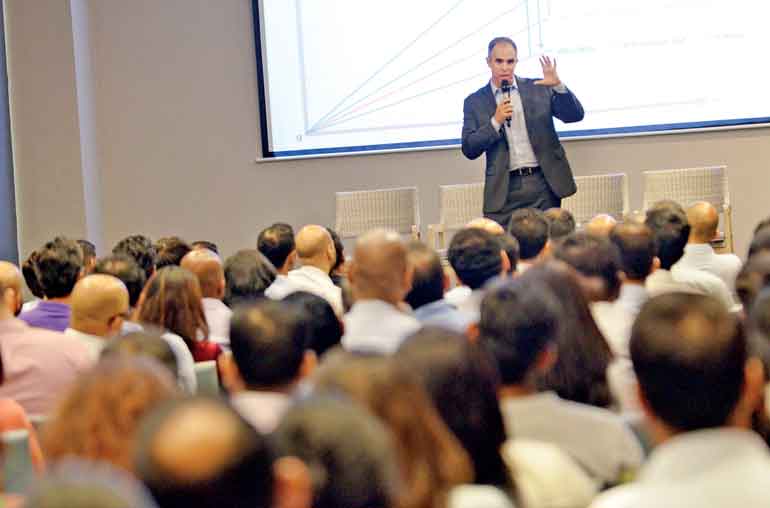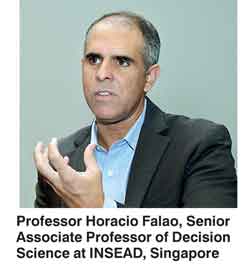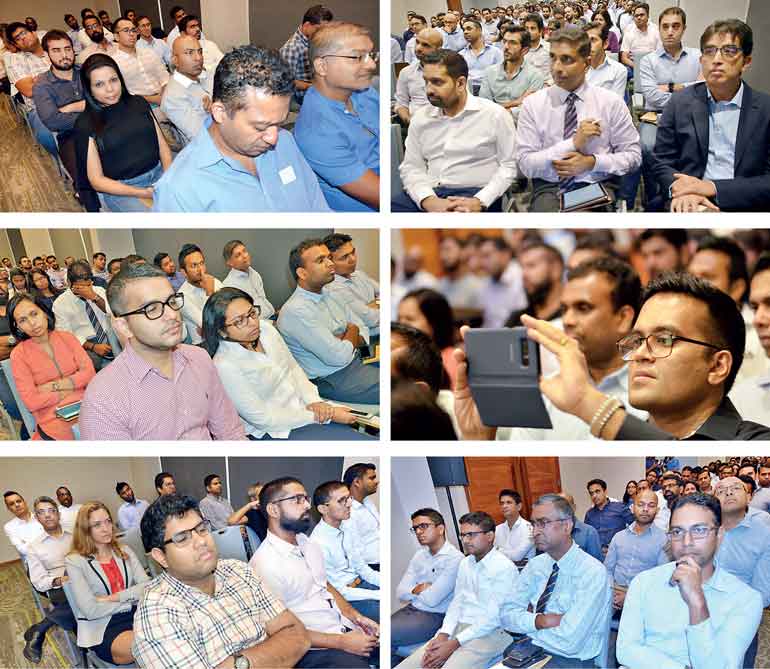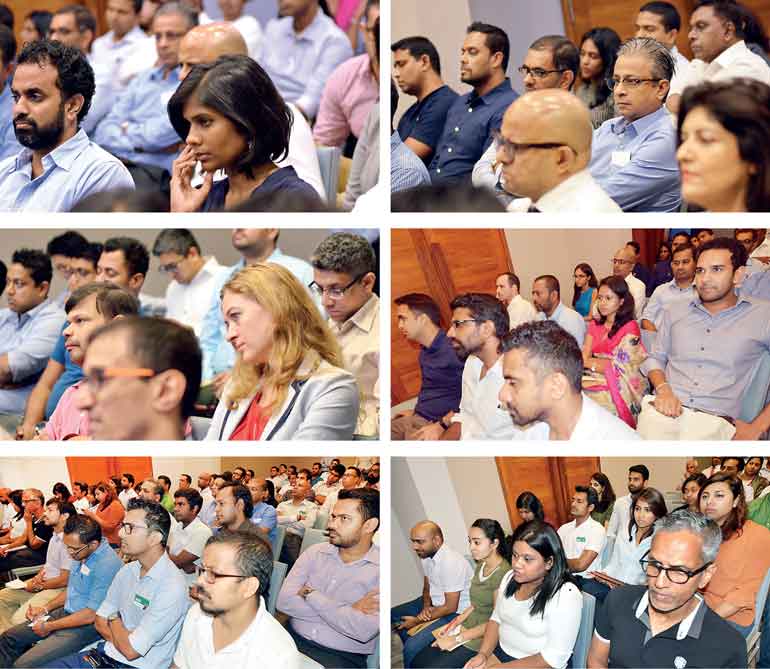Wednesday Feb 18, 2026
Wednesday Feb 18, 2026
Tuesday, 20 February 2018 00:17 - - {{hitsCtrl.values.hits}}

By Darshana Abayasingha
Negotiation skills become a science, just like most knowledge translates to science, explains Professor Horacio Falcao, Senior Associate Professor of Decision Science at INSEAD, Singapore. Falcao is renowned for his continuous research on negotiation science, and adds that as we breakdown and analyse negotiations into small components and start understanding their DNA, practitioners could then begin putting them together in quantifiable and intelligent ways. 
The Professor was speaking to the Daily FT whilst addressing a forum in Colombo last week titled The Myths of Win-Win, hosted by the Colombo Paradise Round Table 5.
One of the primary challenges to arriving at a win-win, or a successful negotiation, is that a lot of people allow fear to dominate the process, Falcao avers. By allowing the fear of losing or fear of failure to dominate the negotiation, many people often view the other side as an opponent rather than a partner and are blind to the good resources available to them to arrive at a good deal. Thus, fear or overt power, are likely to destroy the value you could otherwise generate and find common solutions. Negotiators must pay due attention to reduce fears that either party is looking to take advantage of the other and maximise gains for both sides. This is by no means an easy process, but it will deliver above average results, Falcao says.

The art of negotiation is a multi-disciplinary skill, and it borrows from psychology, behavioural theory, economics and finance to fully comprehend risks and rewards. It requires ability to make rational decisions even with strong emotions, and continuously improve oneself, he adds. How does this work when negotiating with CEOs or Senior Management who tend to be stubborn in their position, we posed to him.
“After 30 or even 40 years and in positions of power, it becomes hard for you to change their ways. So, instead of changing them you must change yourself. Be humble, do your research and be prepared and be ready to learn. When I deal with someone more senior, more powerful or more intelligent than me – people who command respect in one way or the other – I try to learn from them without trying to change them. I try to bring new ideas to the table; ideas that are still relevant to what they say but will point in a new direction. The problem in these situations is people come and try to change others, but in these cases the people with more power are likely to win. If you face a person like that, which is going to be an inglorious battle and probably bloodier for you, it is good to probably embrace the good that they bring to the table and you build from it. How do I bring information and new learning to the table that can get them looking in a new direction? Once they start looking in a new direction then they are starting to change their minds. I am just trying to get them to look at a different direction, which is less scary for them,” Falcao advices.
Different cultures and values can also at times pose challenges to successful negotiations. For instance, in the US meritocracy is valued whereas in China seniority is valued. It’s not that either country does not respect the other value, but the order of priority is different. Again, we need to look for similarities to bridge the gaps, Falcao says. “If you think about genetics, we are all 95% similar to chimpanzees, so we cannot be that different as humans talking at the table. So, we are more similar than different. But for evolutionary reasons, we see difference as risk, and we tend to focus a lot on the difference.”
But in the modern milieu, these differences don’t mean much, he adds, and if we start focusing and looking at similarities we start seeing that people are all very similar. International negotiators cannot become experts on multiple cultures; they must instead focus on what makes all of us human, on what commonalities we share. He asserts if there is a genuine will to find a way and this is expressed clearly, there is more chance the other side will see it and there will be results.

“One of the most frequently asked questions, is that win-win sounds nice, but what if I find someone who is trying to do win-lose and take advantage of me, someone who is more powerful than me? The answer is you continue to aim for win-win, but you do it better. I don’t try to force them, I don’t try to change them because I’m not powerful than them. Make them look at things differently. If I see someone is lying to me that does not mean I have to lie back. There has to be even more responsibility towards the truth. If they hit you, defend yourself and say let us find a different solution.”
Professor Falcao adds that studies suggest successful negotiators can deliver over 20% of premium value over the core number. Win-win done well brings about great benefits. Having had the opportunity to spend over a week in Sri Lanka, we asked him how he rates Sri Lankans at negotiations from his limited engagements. In his opinion, Falcao felt that we need to stop being afraid to ask the difficult questions; probe deeper to find out what the other party really wants. “Why do you want to close a deal with me, find out what truly motivates them – I feel you could ask more.” Aside discussions over tables at corporate and personal level, that would be worthy advice for Sri Lankans on both the national and international stage. The Daily FT was the exclusive media partner to the program, The Myths of Win-Win featuring Professor Horacio Falcao, which was attended by the membership of the Colombo Paradise Round Table 5 and a cross section of invitees and participants from corporates and other spheres.
Pix by Shehan Gunasekera